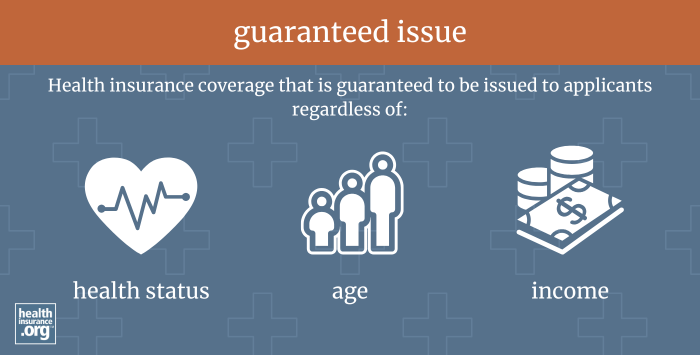
What is guaranteed issue?
Guaranteed issue refers to health insurance coverage that is guaranteed to be issued to applicants regardless of their health status, claims history, age, gender, or other underwriting factors.
Prior to 2014, individual market health insurance (the kind you buy on your own, rather than obtaining from an employer) was typically not guaranteed issue. Instead, insurers in most states based eligibility on an applicant's medical history. But that changed when the bulk of the Affordable Care Act's provisions were implemented in 2014.
All individual-market major medical plans in all states are now guaranteed issue, and applicants' medical history is no longer a factor in their eligibility. The trade-off is that enrollment is now limited to one annual open enrollment period, and special enrollment periods that are mostly triggered by qualifying life events. Whereas prior to 2014, people could apply for individual market coverage at any time, but eligibility in most states was contingent on medical history.
The guaranteed-issue requirement and the limited enrollment windows apply both on-exchange (through the Marketplace) and off-exchange.
Are Medicare and Medicaid guaranteed-issue?
Yes, Medicare and Medicaid are guaranteed-issue, for anyone who meets the eligibility criteria. For Medicare, this includes being at least 65 or having a long-term disability, and for Medicaid, there are income limits for all applicants, age, pregnancy, or disability requirements for some populations, as well as asset limits for some populations.
Both programs also have rules requiring most non-citizens to be lawfully present in the U.S. for at least five years before being eligible for coverage.
But anyone who meets the overall eligibility requirements can enroll, regardless of their medical history.


